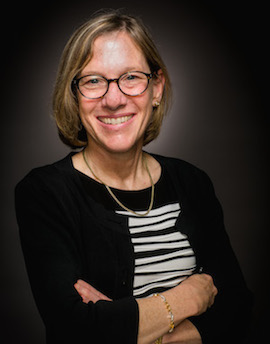 Next week, we will welcome our students back to campus for the second semester of the academic year. The day before classes begin, we celebrate Martin Luther King, Jr., Day with a keynote speech by Juan Felipe Herrera, the Poet Laureate of the United States. While urging you to attend, I want to consider this event as a reflection of our commitment to educating for a better world and an exhortation to us as BU’s College of Arts and Sciences to further that commitment. The work of these two men suggests three themes that I want to briefly consider: inclusion, diversity, and the power of words.
Next week, we will welcome our students back to campus for the second semester of the academic year. The day before classes begin, we celebrate Martin Luther King, Jr., Day with a keynote speech by Juan Felipe Herrera, the Poet Laureate of the United States. While urging you to attend, I want to consider this event as a reflection of our commitment to educating for a better world and an exhortation to us as BU’s College of Arts and Sciences to further that commitment. The work of these two men suggests three themes that I want to briefly consider: inclusion, diversity, and the power of words.
Our most celebrated graduate, Martin Luther King, Jr., came to Boston University because of its historic legacy of inclusion. While universities in the South were closed to Black men and women and many northern universities were effectively closed or unwelcoming to women, Blacks, Jews, and others, our university stood as a beacon of educational opportunity for all. We are proud of this legacy of inclusion and must dedicate ourselves to fostering it in our time.
Diversity is an important value for an educational institution not only because it signals a commitment to equal opportunity, or because we want to attract students from diverse backgrounds, but also because diversity itself is a creative force in the process of innovation within groups. Interestingly, it is because of the tension that is created by bringing together individuals from different cultural groups that such teams are more effective. They bring out the best in each other, and the collective product is better. Only if we have a diverse community can it be the best possible intellectual community.
In this hiring season, our highest priority is attracting the best scholars to our faculty ranks. Who are the best scholars? In making our choices we are building a community of scholars whose work together makes more innovation and impact than as individuals. Just as we choose our future colleagues based in part on their fit with our strategic plans, we should remember the importance of diversity as well.
Juan Felipe Herrera’s poetry often concerns the theme of exclusion, particularly of Mexican and Mexican American migrant workers from the riches of America and the promise of justice. His writing and his example reinforce for us that beautiful work can come from struggle, and that we are better off for including diverse voices in our teaching and in our collective work. For without his powerful, poetic voice, or that of Dr. King, we would be poorer in art and ethics.
As educators, we wield the power of words to teach, to inspire, to include, to explore, and to invent new ideas and new worlds. For our students, Boston University offers the opportunity to invent their future. By creating an inclusive, diverse environment, we create the best environment for all of us to learn and innovate. Let us commit together to a future of peace and justice, of creativity and innovation for goodness.